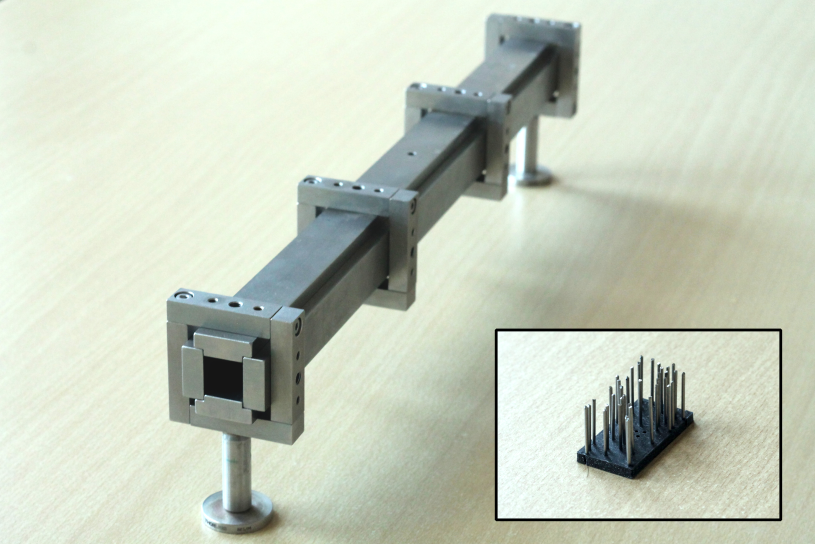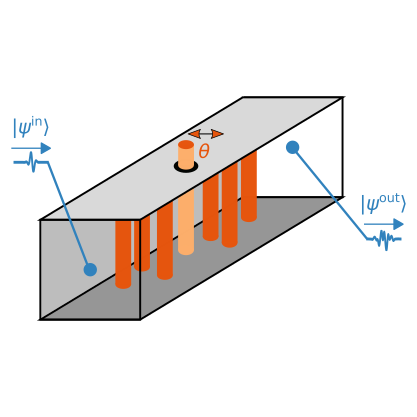Shaping ultrasound echoes

Time-resolved measurements are ubiquitous in physical sciences and engineering. Such measurements are, however, especially difficult to perform in complex scattering systems such as biological tissues or engineered structures. Indeed, a wave propagating through such a system typically yields an uncontrolled temporal field distribution. Here, we show how this distribution can in fact be controlled and tuned so that it allows one to estimate the value of any given observable with ultimate precision.
Let us take the example of a small metallic target hidden into a disordered ensemble of other metallic objects. To estimate the position of the target, we send in an acoustic wave and we measure the resulting output field, which is unavoidably noisy. Our approach then relies on a simple idea: there must exist one temporal profile of the probe wave that will allow us to estimate the position of the target with optimal precision from such measurements. In our work, we theoretically show how to identify this optimal profile for any scattering system, regardless of its complexity. We then present the results of a proof-of-principle experiment performed with ultrasounds, in which we evidence that a fundamental symmetry of nature (time-translation symmetry) further helps us to find these optimal probe waves.
This study has been published in Physical Review Reserach (Bouchet & Bossy, 2023).
